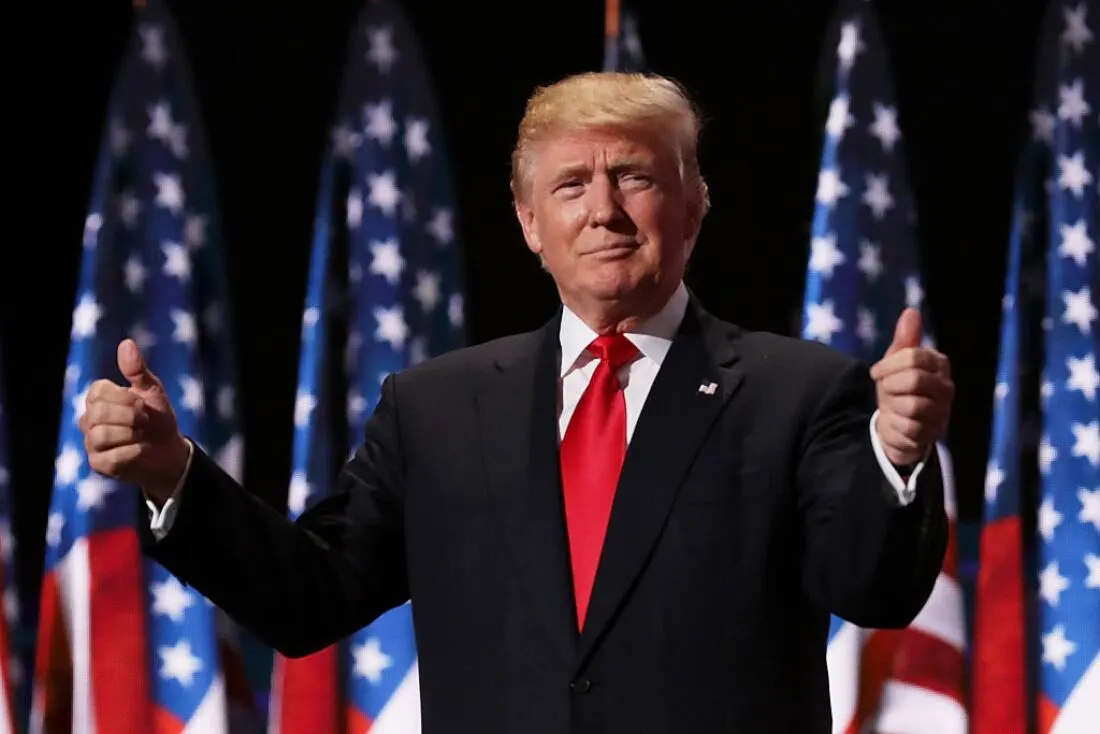As President-elect Donald Trump prepares to take office, his administration’s approach to cryptocurrency is already generating significant attention. From Polymarket users betting on whether crypto-related terms will appear in his inaugural speech to reports of potential executive orders addressing key regulatory challenges, the intersection of crypto and politics is in the spotlight. With appointments of crypto-friendly figures and rumored policy changes, the stage is set for what could be a pivotal moment for the digital asset industry in the United States.
Polymarket Users Bet Over $845,000 on Trump Mentioning Crypto at Inauguration Speech
Users of the decentralized prediction market platform Polymarket have wagered a staggering $845,000 on whether President-elect Donald Trump will mention cryptocurrency-specific keywords during his inauguration speech on Jan. 20. The prediction market has gained significant traction as the crypto community and political observers speculate on the potential contents of Trump’s address.
Polymarket, known for its decentralized structure and ability to host a variety of predictive bets, has once again become a hub for betting activity. The platform has garnered attention for allowing users to stake funds on politically charged topics, particularly those involving Trump.
As of now, users have placed nearly $519,000 on a bet that Trump will say “crypto” or “bitcoin” in his speech. Another pool saw over $326,000 staked on whether the president-elect will reference “doge” or “dogecoin.” Despite the enthusiastic participation, the odds remain low, with predictions giving “crypto” and “bitcoin” a 15% chance of being mentioned, while “doge” and “dogecoin” carry a 13% likelihood of inclusion in the speech.
The total trading volume for bets on what Trump will say during his inauguration speech has exceeded $1.86 million. This represents a fraction of Polymarket’s broader activity, which saw $1.93 billion in trading volume in December. Although this marks a 26.6% decline compared to November, the platform’s performance demonstrates sustained interest in prediction markets tied to major events.
Polymarket’s activity during the 2024 presidential election highlighted its prominence as a platform for political betting. Users previously wagered on Trump’s statements at campaign rallies, the second presidential debate, and even a speculative conversation with entrepreneur Elon Musk.
The involvement of crypto enthusiasts in betting markets reflects the sector’s hope for mainstream validation. A mention of “crypto,” “bitcoin,” or “dogecoin” by a figure as polarizing and influential as Trump would undoubtedly make headlines and could drive public discourse about digital assets.
However, political analysts and Polymarket participants alike remain divided on the likelihood of such an outcome. Trump’s previous speeches and public statements have rarely ventured into the intricacies of cryptocurrency, though his engagement with topics like digital innovation and blockchain technology has occasionally surfaced in interviews and social media posts.
Polymarket’s rise to prominence is evidence of the broader appeal of decentralized prediction markets, particularly among cryptocurrency users. By leveraging blockchain technology, platforms like Polymarket enable users to make predictions on virtually any topic in a secure and transparent manner.
The crypto betting pools on Trump’s speech also highlight a cultural shift, where decentralized finance (DeFi) platforms are not just tools for trading and investment but also hubs for engaging with real-world events in creative ways. The transparency offered by blockchain technology ensures participants can verify the outcomes and transactions within these markets, bolstering trust and participation.
What Could a Mention Mean for the Market?
If Trump were to mention cryptocurrency-related keywords during his inauguration speech, it could trigger a ripple effect in both traditional and digital markets. For one, it could serve as an acknowledgment of crypto’s growing relevance in mainstream discourse. More tangibly, such a statement could spur short-term market volatility, as traders react to what could be perceived as a bullish signal for digital assets.
On the other hand, some skeptics argue that a mention of crypto is unlikely, given Trump’s general focus on broader political and economic issues. The relatively low odds reflected in Polymarket’s predictions suggest that while participants are hopeful, they remain pragmatic about the potential outcome.
The buzz surrounding Polymarket’s betting pools on Trump’s inauguration speech shows the unique intersection of politics, cryptocurrency, and speculative markets. Whether or not Trump mentions “crypto,” “bitcoin,” “doge,” or “dogecoin” in his address, the event has already shone a spotlight on the cultural and economic influence of decentralized platforms like Polymarket.
With the platform achieving remarkable trading volumes and driving engagement, the crypto community’s growing appetite for intertwining real-world events with decentralized markets is evident. Regardless of the results on Jan. 20, Polymarket has solidified its position as a leader in prediction markets, and its influence on how users interact with political events is likely to continue expanding.
President-elect Donald Trump Expected to Address Crypto Industry Concerns on Day One
Trump is preparing to issue a series of executive orders on his first day in office, signaling a potentially transformative shift in US cryptocurrency policy. According to The Washington Post, these actions could repeal the US Securities and Exchange Commission’s (SEC) controversial crypto accounting guidance and address the contentious issue of “de-banking” for crypto firms.
Trump’s crypto policy appears to have taken shape under the guidance of newly appointed “crypto czar” David Sacks and the Trump transition team. Sacks, a former COO of PayPal and a known advocate for innovation in fintech, has worked closely with the team to finalize a legislative framework designed to bolster the crypto sector. Key among their targets is Staff Accounting Bulletin 121 (SAB 121), a rule that mandates firms holding cryptocurrencies in custody to classify their customers’ crypto holdings as liabilities on their balance sheets.
The bulletin has long been criticized by crypto industry stakeholders for creating unnecessary financial burdens. Industry insiders argue that SAB 121 not only complicates accounting processes but also disincentivizes financial institutions from engaging with crypto-related services.
The Trump administration’s focus on SAB 121 comes after prior legislative attempts to repeal the guidance failed. Last year, a bipartisan effort to overturn the rule gained traction in Congress. The House voted 228-182 in favor of repeal, with support from 21 Democrats. The Senate followed with a 60-38 vote, including notable support from Senate Majority Leader Chuck Schumer (D-N.Y.). However, the measure was ultimately vetoed by President Joe Biden.
Trump’s willingness to address SAB 121 on his first day in office signals a more crypto-friendly stance compared to his predecessor. If repealed, the move could encourage more financial institutions to engage with cryptocurrency custody services, addressing a long-standing industry grievance.
Another critical focus of Trump’s executive orders is the issue of “de-banking,” a term used to describe the systemic exclusion of crypto firms from traditional banking services. Many in the industry have accused the Biden administration of subtly discouraging financial institutions from working with cryptocurrency companies, despite official statements to the contrary.
Federal agencies, including the Federal Deposit Insurance Corporation (FDIC), have maintained that banks are neither prohibited nor discouraged from serving crypto clients. However, the crypto sector has argued that these reassurances are not reflected in practice, citing challenges in accessing banking services as evidence of regulatory hostility.
Addressing de-banking could provide a significant boost to the industry, ensuring crypto firms have the financial infrastructure needed to operate effectively.
Trump’s administration is shaping up to be far more open to cryptocurrency than the outgoing Biden administration. Key appointments signal a pivot toward a more favorable regulatory environment:
-
Paul Atkins, a former SEC commissioner with a reputation for being crypto-friendly, is set to lead the SEC. Atkins is expected to push for balanced regulations that encourage innovation while protecting investors.
-
David Sacks, a prominent advocate for blockchain and artificial intelligence, will serve as the White House A.I. and Crypto Czar. His dual role underscores the administration’s intent to integrate emerging technologies into its policy framework.
A Push for a National Bitcoin Stockpile?
In addition to repealing SAB 121 and addressing de-banking, Trump’s administration is rumored to be considering the creation of a national “bitcoin stockpile.” According to Reuters, the crypto industry has lobbied for executive orders that would establish such a reserve, signaling government interest in digital assets as a strategic asset class. While specifics remain unclear, this proposal could mark a significant step toward mainstream adoption and integration of cryptocurrencies into national economic strategy.
The crypto industry has largely welcomed Trump’s plans, viewing them as a much-needed course correction. Repealing SAB 121 and addressing de-banking would alleviate significant operational hurdles for crypto firms and signal that the government is willing to engage with the industry in good faith.
However, skeptics question the feasibility of Trump’s broader crypto agenda. Critics argue that repealing SAB 121 and implementing pro-crypto banking reforms may face pushback from regulators and financial institutions wary of the risks associated with digital assets.












